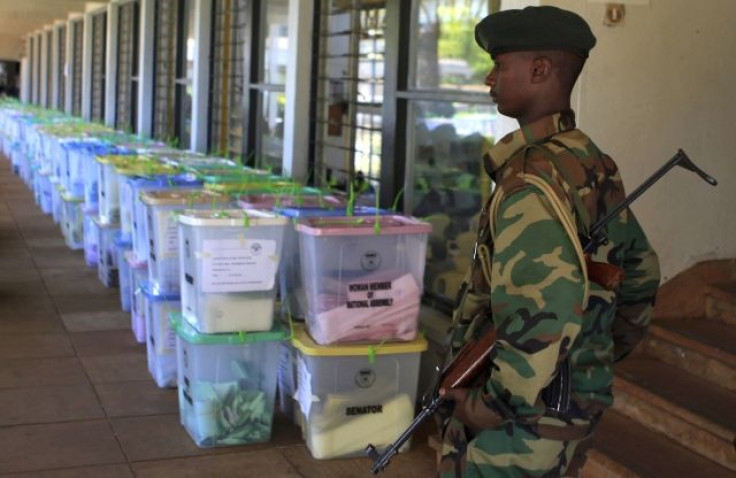Kenya Election Results: Kenyatta Looks To Be Victor, But Opponent Odinga Claims Fraud

After an election day of high tensions and hours-long lines, and a week of politicians crying foul play, Kenya is getting ready to announce its next president.
The current leader in the polls, Uhuru Kenyatta, is the son of Kenya’s founding president, Jomo Kenyatta, and the leader of the National Alliance party. As of last count Friday morning, Kenyatta held a 49.7 percent lead over his main opponent, Prime Minister and Orange Democratic Movement party leader, Raila Odinga, who has 44 percent of the vote, several news reports said. Seventy percent of Kenya’s eligible voters participated in this election, officials said.
If no candidate receives a clear 50 percent of the vote, there will be a runoff election, possibly in April.
A final call on the results hasn't yet been made; however, that hasn’t stopped Odinga and his running mate, Kalonzo Musyoka, from claiming election fraud, on a vote that was deemed “fair and transparent” by both the African Union and the European Union.
This was a tense election for Kenyans who remembered the 1,200 people killed in post-election violence that lasted weeks in 2007. Hundreds of thousands were displaced, and Odinga’s objections could be just the start of Kenyatta’s troubles. If elected, Kenyatta will be the second African president to be charged before the International Criminal Court -- the first was Sudan’s cowboy-hat wearing Omar Hassan al-Bashir. Kenyatta has been charged with bankrolling death squads that targeted women and children as well as other crimes against humanity in connection with the post-2007 election violence.
Since then, Kenya has taken steps to reassure the public of a fair, free, and transparent election using the Independent Electoral and Boundaries commission, the country's own electoral watchdog group.
“People have a lot of faith in the new technology,” Gabrielle Lynch, an associate professor of politics at the University of Warwick, in England, who is now in Kenya, said on Monday.
This year's election saw less bloodshed in comparison to several years ago. Nonetheless, at least 15 people were reported killed in two separate attacks, one in the major coastal port city of Mombasa, and one in the small town of Kilifi, about 80 miles to the north, several news accounts said.
“Given the comments that have been made, there’s an indication that the West favors Raila Odinga,” Jendayi Frazer, former U.S. assistant secretary of state for African affairs and a fellow with the Council on Foreign Relations, said on Tuesday.
“I’d expect a warmer relationship [between the U.S. and Kenya] if Odinga wins the presidency, but in either case American interests and Kenyan interests are aligned,” she added.
© Copyright IBTimes 2024. All rights reserved.












